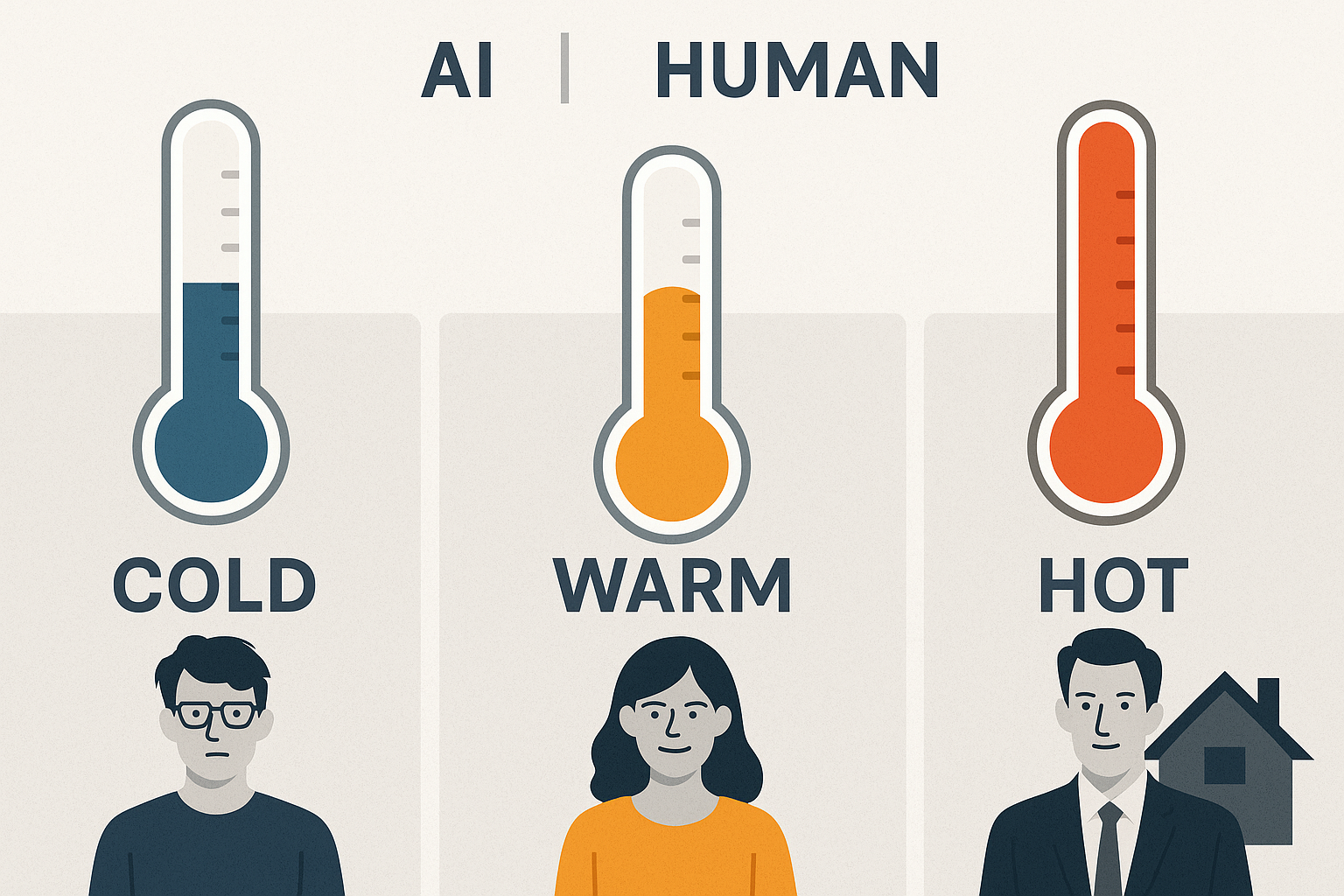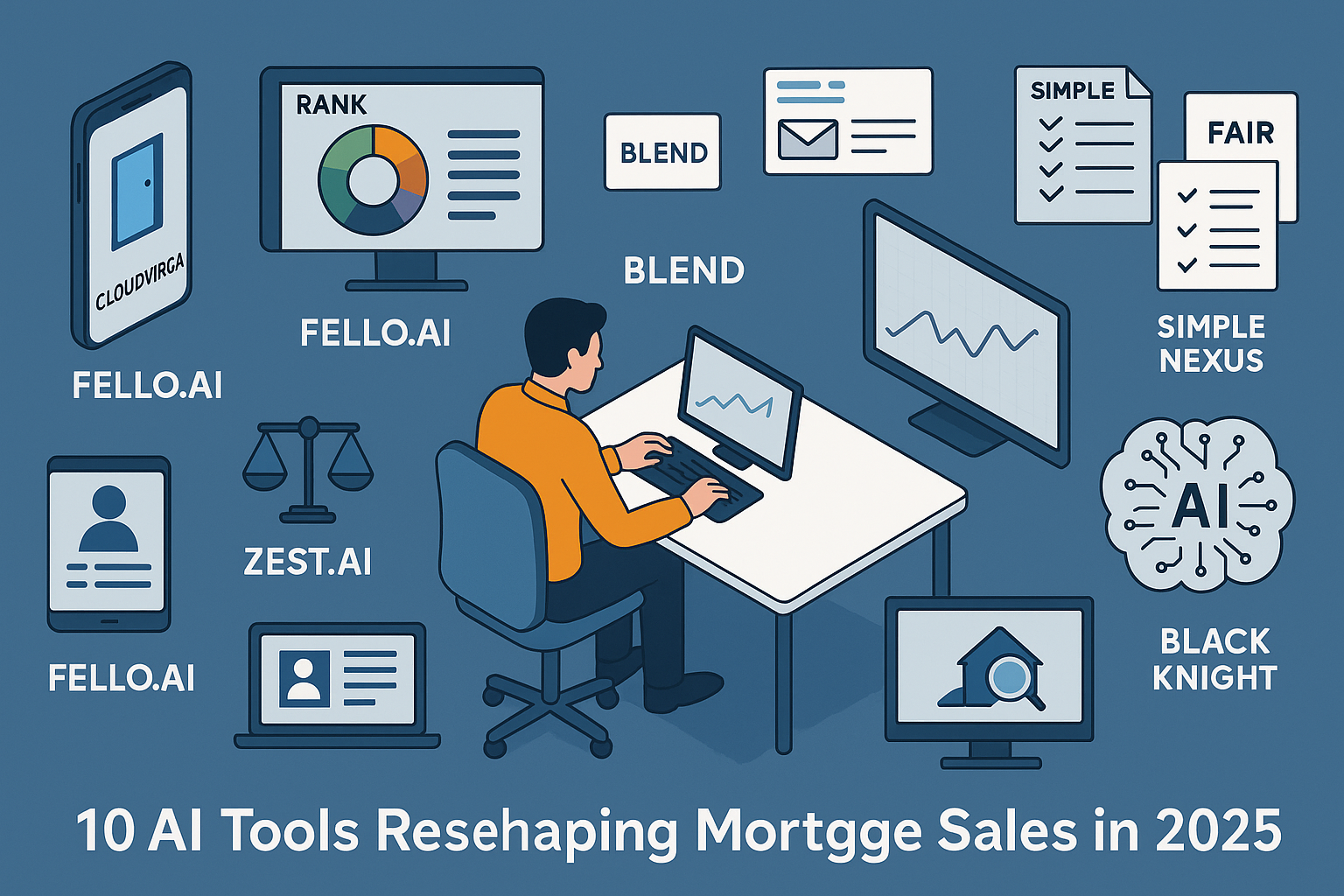What's in this article?
Picture this: You invested thousands in a mortgage CRM system, trained your team, and expected a surge in conversions. Instead, your loan officers are frustrated, leads are slipping through cracks, and your conversion rates remain stubbornly flat.
You’re not alone. With CRM failure rates hovering between 50-55% across industries and user adoption averaging just 26%, the mortgage industry faces a technology crisis that’s costing lenders millions in lost opportunities.
The stark reality? Traditional mortgage CRMs are built for data storage, not intelligent decision-making. While 90% of companies with over 11 employees have adopted CRM systems, the majority struggle with the same fundamental flaw: they can’t tell you which leads deserve immediate attention and which can wait.
The Four CRM Killers Destroying Your Pipeline
1. The Adoption Death Spiral
Your expensive CRM sits gathering digital dust because loan officers find it cumbersome and time-consuming. Manual data entry consumes 23% of productive time, while complex interfaces drive users back to spreadsheets and sticky notes. When Atlantic Bay Mortgage Group achieved a remarkable 92% adoption rate, they proved the exception, not the rule.
2. Lead Scoring Based on Guesswork
Static scoring systems assign points based on outdated assumptions: “Anyone who downloaded our rate sheet gets 50 points.” This approach ignores behavioral signals, timing, and the complex journey of mortgage shoppers. Your hottest prospect might be scoring lower than someone who abandoned the application process weeks ago.
3. The Integration Nightmare
Seventeen percent of CRM failures stem from poor integration with existing systems. Your CRM operates in isolation while crucial data remains trapped in loan origination systems, marketing automation platforms, and third-party tools. The result? Incomplete customer profiles and missed opportunities.
4. One-Size-Fits-All Lead Assignment
Most CRMs distribute leads using simple round-robin systems or basic geographic rules. They don’t consider loan officer expertise, current capacity, or historical performance with similar customer profiles. Your VA loan specialist might be handling FHA first-time buyers while your FHA expert sits idle.
How AI Lead Scoring Transforms Your Mortgage CRM Into a Revenue Machine
Modern AI lead scoring systems analyze hundreds of behavioral signals, demographic factors, and historical patterns to predict conversion probability with stunning accuracy. Here’s how this technology revolutionizes mortgage lead management:
Predictive Intelligence That Actually Predicts
AI algorithms process website behavior, email engagement, application completion rates, and external data sources to generate dynamic lead scores. Instead of static point systems, you get real-time insights that adapt as customer behavior evolves. Leads showing high intent signals get immediate attention, while dormant prospects receive nurturing campaigns.
Smart Lead Assignment That Maximizes Conversions
| Factor | Traditional CRM | AI-Powered System |
| Assignment Logic | Geographic/Sequential | Predictive Matching |
| Loan Officer Matching | Random/Basic Rules | Expertise + Capacity + Performance |
| Timing Optimization | Immediate/Batch | Behavioral Peak Moments |
| Follow-up Strategy | Generic Templates | Personalized Based on Lead Profile |
Continuous Learning That Improves Performance
Unlike static systems, AI lead scoring platforms learn from every interaction. They identify patterns invisible to human analysis: which marketing channels produce the most qualified leads, optimal contact timing for different customer segments, and early warning signs of application abandonment.
The Proof Is in the Performance
Companies implementing AI lead scoring report conversion rate improvements of 15-30% within six months. More importantly, loan officers spend less time chasing dead ends and more time building relationships with qualified prospects.
Consider the impact on a mid-sized lender processing 200 leads monthly. With traditional scoring, they might close 8-12 loans. AI-powered prioritization could increase closings to 10-16 loans monthly, representing hundreds of thousands in additional revenue.
Ready to Transform Your Lead Management Strategy?
Your current CRM doesn’t have to be a liability. The right AI lead scoring solution integrates seamlessly with existing systems, providing the intelligence layer your mortgage business needs to thrive.
ProPair.ai specializes in mortgage-focused AI lead scoring that works with your current CRM. Our platform analyzes behavioral data, predicts conversion probability, and optimizes lead assignment to maximize your team’s effectiveness.
Schedule Your AI Lead Scoring Demo Today →
Frequently Asked Questions
How accurate is AI lead scoring compared to traditional methods?
AI lead scoring systems typically achieve 70-85% accuracy in predicting conversions, compared to 40-60% for rule-based systems. The accuracy improves over time as the system learns from your specific customer data.
Will AI lead scoring work with our existing CRM?
Most modern AI lead scoring platforms integrate with popular mortgage CRMs including Encompass, Velocify, and Salesforce. Integration typically requires minimal technical setup and doesn’t disrupt existing workflows.
How long does it take to see results from AI lead scoring?
Most lenders see initial improvements within 30-60 days, with full optimization achieved after 90-120 days as the AI system accumulates sufficient behavioral data.
What data does AI lead scoring need to function effectively?
The system analyzes website behavior, email engagement, application data, demographic information, and historical conversion patterns. More data inputs generally improve accuracy, but basic implementation requires minimal data points.
How much does AI lead scoring typically cost?
Pricing varies based on lead volume and features, but most solutions offer positive ROI within six months through improved conversion rates and increased loan officer productivity.



